Stay Calm and Open a Health Savings Account
Healthcare. Retirement. Those may be two of the most stressful words in the English language today. Especially when you include them both in the same sentence.
For instance, a married couple that saves $326,000 has a 90 percent chance of having enough money to pay healthcare expenses in retirement. A single man would need to save $116,000 for retirement healthcare expenses, and a single woman about $131,000 to have the same odds, according to the Employee Benefit Research Institute (EBRI).1
Health. Savings. Account.
Those three words can help reduce the stress of retirement healthcare expenses. A Health Savings Account, or HSA, is a tax-advantaged account that can be opened by anyone who is enrolled in a high deductible health plan (with a deductible of at least $1,300 for individuals or $2,600 for families for 2015). Typically, HSAs offer three significant tax benefits:
1. Tax-free withdrawals. If you use HSA savings to pay qualified medical expenses, the withdrawals are income tax free.2
2. Pre-tax (or tax-deductible) contributions. Contributions to HSAs are federally tax-deductible up to certain limits. For 2015, the limits are $3,350 for a single person and $6,650 for a family. If you’re age 55 or older, then you can save an additional $1,000 a year in the account.3
3. Tax-deferred growth. Any interest earned in an HSA grows tax-deferred. Generally, HSA contributions go into an account at a bank, credit union, or other financial institution that is an HAS-approved custodian. However, those savings can also be invested.2, 4
It’s not a Flexible Savings Account
HSAs have been around for a decade, but relatively few Americans understand how they work. In fact, many confuse them with Flexible Savings Accounts (FSAs). While there are some similarities between the two accounts – both allow pre-tax contributions and both can be used to pay qualified medical expenses – there are significant differences.5
For example, you set up and own an HSA. Any money left in the account at the end of the year, remains in the account to be used in the future. There is no “use it or lose it” provision. In contrast, your employer sets up and owns an FSA. If money is left in the account at the end of the year, it is forfeited to the employer.5, 6
Savings can be used to pay qualified medical expenses
Money set aside in HSAs can be used to pay health insurance deductibles, as well as qualified medical expenses, health insurance premiums (if you’re receiving unemployment benefits), and long-term care premiums. However, it’s not always easy to know what qualifies and what doesn’t. The New York Times explained:7
“Under a change enacted with the Affordable Care Act, most over-the-counter drugs, like common allergy medications or pain relievers, are HSA-eligible only if you get a prescription for them from your doctor. On the other hand, items like sunscreen and contact lens solution are eligible for purchase – without a prescription – with your HSA funds.”
When funds are used for non-qualified expenses, the withdrawal is taxed as ordinary income and, if the account holder is younger than age 65, a 20 percent penalty tax is owed.3
Savings can also be used for retirement income
The best incentive for saving as much as possible in an HSA is this: if you reach age 65, and have savings in your account, the money can be used for living expenses as well as qualified medical expenses. Withdrawals that are used to supplement income may be taxed as ordinary income.8
It’s possible to accumulate quite a significant amount of savings in an HSA because any earnings grow tax-deferred, just like earnings in a 401(k) plan. According to EBRI:9
“A person contributing for 40 years to an HSA could save up to $360,000 if the rate of return was 2.5 percent, $600,000 if the rate of return was 5 percent, and nearly $1.1 million if the rate of return was 7.5 percent, and if there were no withdrawals.”
Unfortunately, few accountholders are taking advantage of HSAs’ tax-deferred growth potential. At the end of 2014, there were about 13.8 million HSA accounts in the United States. The accounts held about $24 billion but just a fraction of that amount ($3.2 billion) was invested.10
Make the most of your HSA
Clearly, HSAs offer some attractive benefits for Americans with high-deductible insurance plans. In addition to offering a triple tax-advantage and helping Americans pay current and future medical expenses, these accounts can be used to supplement retirement income.
If you have an HSA and the funds are invested in a low interest rate account, like a checking or savings account, you can transfer the funds to a different HSA provider.11
Learning all the benefits and seeing the numerous advantages of an HSA should tell you one thing: making the most of this savings plan may position you well for many of life’s short-term and long-term events.
The opinions voiced in this material are for general information only and are not intended to provide specific advice or recommendations for any individual.
The HSA earnings example used is hypothetical and is not representative of any specific situation. Your results will vary. The hypothetical rates of return used do not reflect the deduction of fees and charges inherent to investing.
Sources:
1 http://www.ebri.org/publications/notes/index.cfm?fa=notesDisp&content_id=5454
2 http://www.hsacenter.com/what-is-hsa.html
3 http://www.shrm.org/hrdisciplines/benefits/articles/pages/2015-hsa-limits.aspx
4 http://www.bankrate.com/finance/savings/how-to-choose-a-health-savings-account-1.aspx
5 http://www.bcbsm.com/index/health-insurance-help/faqs/plan-types/health-spending-accounts/differences-between-an-hsa-hra-fsa.html
6 http://www.plansponsor.com/HSAs-Have-Long-Term-Potential/
7 http://www.nytimes.com/2015/07/18/your-money/when-using-a-health-savings-account-know-what-is-eligible.html?ref=business
8 http://www.hsacenter.com/hsa-benefits.html
9 http://www.ebri.org/pdf/notespdf/EBRI_Notes_07_July-14_HSAs-IRAs.pdf
10 http://www.devenir.com/research/2014-year-end-devenir-hsa-market-research-report/
11 http://www.kiplinger.com/article/insurance/T027-C000-S002-health-savings-accounts.html
This material was prepared by Peak Advisor Alliance. Peak Advisor Alliance is not affiliated with the named broker/dealer.











